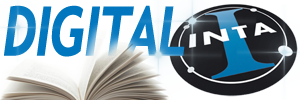Por favor, use este identificador para citar o enlazar este ítem:
http://hdl.handle.net/20.500.12666/774| Título : | Comparison of Metal-Backed Free-Space and Open-Ended Coaxial Probe Techniques for the Dielectric Characterization of Aeronautical Composites |
| Autor : | López Rodríguez, P. Escot Bocanegra, D. Poyatos Martínez, D. Weinmann, F. |
| Palabras clave : | Antenna probes;Permittivity;Characterization;Free-space;Composite materials;fiberglass;Coaxial probe;Split cavity resonator |
| Fecha de publicación : | 24-jun-2016 |
| Editorial : | Multidisciplinary Digital Publishing Institute (MDPI) |
| DOI: | 10.3390/s16070967 |
| Versión del Editor: | https://www.mdpi.com/1424-8220/16/7/967 |
| Citación : | Sensors 16(7): 10.3390/s16070967 |
| Resumen : | The trend in the last few decades is that current unmanned aerial vehicles are completely made of composite materials rather than metallic, such as carbon-fiber or fiberglass composites. From the electromagnetic point of view, this fact forces engineers and scientists to assess how these materials may affect their radar response or their electronics in terms of electromagnetic compatibility. In order to evaluate this, electromagnetic characterization of different composite materials has become a need. Several techniques exist to perform this characterization, all of them based on the utilization of different sensors for measuring different parameters. In this paper, an implementation of the metal-backed free-space technique, based on the employment of antenna probes, is utilized for the characterization of composite materials that belong to an actual drone. Their extracted properties are compared with those given by a commercial solution, an open-ended coaxial probe (OECP). The discrepancies found between both techniques along with a further evaluation of the methodologies, including measurements with a split-cavity resonator, conclude that the implemented free-space technique provides more reliable results for this kind of composites than the OECP technique |
| URI : | http://hdl.handle.net/20.500.12666/774 |
| ISSN : | 1424-8220 |
| Aparece en las colecciones: | (Espacio) Artículos |
Ficheros en este ítem:
| Fichero | Descripción | Tamaño | Formato | |
|---|---|---|---|---|
| Comparasion of metal backed free space and open ended coaxial probe techniques for the Dielectric characterization of aeronautical composites.pdf | 6,89 MB | Adobe PDF |  Visualizar/Abrir |
Este ítem está sujeto a una licencia Creative Commons Licencia Creative Commons



